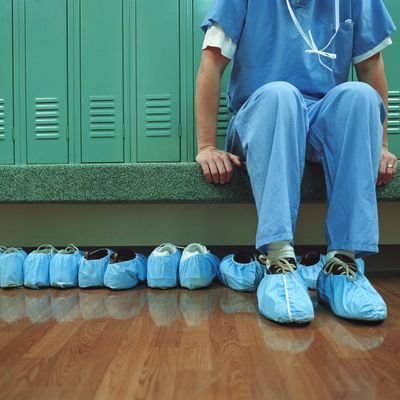
As parts of the United States move to reopen following weeks (or months) of enforced business closures and stay-at-home orders in response to the coronavirus pandemic, public-health officials and private citizens alike are beginning to worry about a “second wave” of the novel coronavirus. Presidential adviser and National Institute of Allergy and Infectious Diseases director Dr. Anthony Fauci recently cautioned that a failure to take proper precautions now and over the summer would result in “a bad fall and a bad winter.”
What we know about the novel coronavirus broadly remains limited, and more research is emerging every week. But given what we’ve learned so far, here’s what we can expect after coronavirus cases begin to decline.
Will there be a second wave of the coronavirus?
According to public-health officials and disease specialists: yes. Until we have a vaccine (and most experts agree that’s at least a year off), there is no reason to believe that the coronavirus will simply die off. While some experts remain cautiously optimistic that cases will drop with warmer weather like they do for the flu (likely because the virus survives better in cold, dry climates and because we spend more time in close proximity to people in the winter), we can’t yet know for sure. Even if there is less risk for COVID-19 in the hotter months, it will eventually cool off again, and at that point, we can expect the virus to resume its rapid transmission. And again, we don’t know for sure if warm weather will help at all.
When will there be a second wave of the coronavirus?
If expectations about the virus’s transmissibility prove relatively consistent with the flu and the common cold, public-health experts say we can expect cases to resurge in the fall and winter. Because we also don’t know how long people remain immune to COVID-19 once they’ve had it, it’s possible that people who’ve gotten sick in this first wave could be reinfected within the year — meaning it might not just be those who haven’t already been sick who get sick this winter.
What should we expect from a second wave of the coronavirus?
There’s a lot we can’t predict about future waves of the coronavirus given that future outbreaks may be impacted by what we do now. States which lessen lockdown measures and social-distancing guidelines have caused some public-health officials (including Fauci) to worry that the second wave might come sooner and more severely than we think.
CDC director Robert Redfield told the Washington Post, “There’s a possibility that the assault of the virus on our nation next winter will actually be even more difficult than the one we just went through.” This, he warns, is because hospitals and physicians will be dealing with the coronavirus and the flu at the same time, creating an even higher strain on medical resources. Many health officials have warned that the first wave of COVID-19 could have been even worse if it hadn’t arrived toward the tail end of flu season. “It could have been really, really, really, really difficult in terms of health capacity,” Redfield said.
More than 60,000 Americans have died from COVID-19 thus far, with more than 1.1 million cases in the United States alone.


